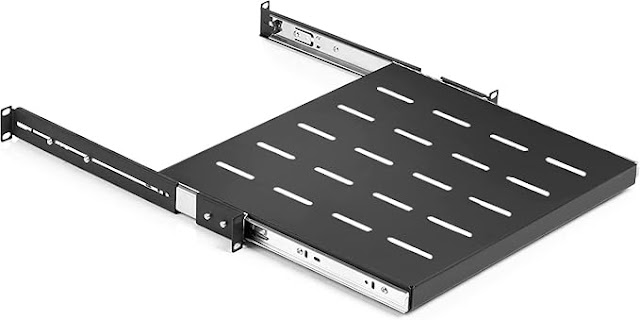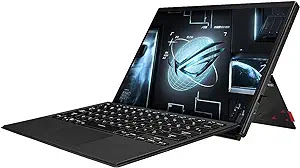Comprehensive Guide to Computer Accessories and Peripherals.
 |
| Nice use |
In today’s fast-paced digital world, having the right computer accessories and peripherals can significantly enhance your computing experience. Whether you’re a casual user, a professional, or a gamer, the right tools can boost productivity, improve comfort, and ensure better performance. This article will explore various categories of computer accessories, components, and storage solutions, providing insights into their functionalities, benefits, and recommendations.
Computer Components.
 |
| Lok nice esy worek |
Central Processing Unit (CPU).
The CPU, often referred to as the brain of the computer, is crucial for executing instructions and performing calculations. When choosing a CPU, consider factors such as clock speed, number of cores, and thermal design power (TDP). Popular manufacturers include Intel and AMD, each offering a range of processors suitable for different needs—from basic computing to high-end gaming.
Motherboard.
 |
| Look beuty |
The motherboard connects all computer components, facilitating communication between the CPU, RAM, storage, and peripherals. When selecting a motherboard, ensure compatibility with your CPU and consider factors like form factor (ATX, Micro-ATX), expansion slots, and built-in features such as Wi-Fi and Bluetooth.
Graphics Processing Unit (GPU).
For gamers and professionals in fields like graphic design and video editing, the GPU is essential. It handles rendering images and videos, providing smoother visuals. NVIDIA and AMD are leading manufacturers, offering GPUs that range from budget-friendly to high-end options.
Random Access Memory (RAM).
RAM plays a critical role in multitasking and overall system performance. More RAM allows for smoother operation of applications and quicker load times. Depending on your needs, you can choose between 8GB, 16GB, or even 32GB of RAM, with DDR4 and DDR5 being the latest standards.
Power Supply Unit (PSU).
The PSU provides power to all components in a computer. It’s vital to choose a reliable unit with enough wattage to support your hardware, ideally with a certification rating (like 80 Plus) for efficiency.
Computers and Tablets.
Computers and tablets come in various forms to suit different user needs:
Desktops:
Desktops offer high performance and expandability, making them ideal for gaming, video editing, and professional workstations. Custom-built desktops can be tailored to specific needs, while pre-built systems are convenient for everyday users.
Laptops.
Laptops combine portability with functionality. They come in different types, including ultrabooks, gaming laptops, and business notebooks. When choosing a laptop, consider factors like screen size, battery life, and performance specifications.
Tablets.
Tablets offer a more portable computing experience, perfect for browsing, media consumption, and light productivity tasks. Many models support styluses for drawing and note-taking, making them popular among creatives.
Data Storage Solutions.
Data storage is essential for any computer system, as it holds all files and applications.
Hard Disk Drives (HDD).
HDDs provide a cost-effective solution for large storage needs. They are slower than SSDs but offer significantly more storage capacity for the price, making them suitable for archiving data.
Solid State Drives (SSD).
SSDs are faster and more reliable than traditional HDDs, significantly improving boot times and application load times. They are available in various formats, including SATA and NVMe, with NVMe offering superior speeds.
External Storage.
External hard drives and SSDs are perfect for additional storage or backups. They come in portable and desktop variants, with various capacities. Cloud storage options are also worth considering for secure, off-site backups.
External Computer Accessories.
Keyboards.
A good keyboard can enhance your typing experience. Mechanical keyboards are popular for their tactile feedback, while membrane keyboards are often quieter. Consider ergonomic designs to reduce strain during extended use.
Mice.
The mouse is another critical accessory that affects usability. Gaming mice often feature customizable buttons and high DPI settings for precision, while ergonomic mice can help prevent discomfort.
Speakers and Headphones.
Audio quality matters, whether you’re gaming, watching movies, or listening to music. Invest in quality speakers or headphones, considering factors like sound quality, comfort, and connectivity options (wired vs. wireless).
Laptop Accessories.
Laptop Stands.
Laptop stands can improve ergonomics, promoting better posture while working. They also enhance airflow, reducing the risk of overheating.
Docking Stations.
Docking stations expand connectivity options for laptops, providing additional ports for USB devices, monitors, and Ethernet connections, making them ideal for home office setups.
Laptop Bags.
Protecting your laptop during transport is crucial. Look for padded bags with compartments for accessories, ensuring safe and organized storage.
Monitors.
A quality monitor can greatly enhance your computing experience.
Display Types.
Monitors come in various display types, including LED, LCD, and OLED. Each type has its advantages regarding color accuracy, response time, and energy consumption.
Resolution.
Resolution impacts clarity and detail. Options include Full HD (1080p), Quad HD (1440p), and 4K (2160p). Higher resolutions are particularly beneficial for gaming and professional design work.
Refresh Rate.
For gamers, refresh rate is critical. A higher refresh rate (e.g., 144Hz) provides smoother visuals, reducing motion blur and improving gameplay responsiveness.
Network Products.
Networking accessories ensure a stable and fast internet connection.
Routers.
A reliable router is essential for a strong internet connection. Look for features such as dual-band support, MU-MIMO, and quality of service (QoS) settings for optimized performance.
Network Switches.
Network switches expand the number of devices that can connect to a network. Managed switches offer advanced features for controlling traffic and monitoring network performance.
Range Extenders.
For larger homes or offices, range extenders help boost Wi-Fi signals, eliminating dead zones and ensuring coverage in every corner.
 her her |
| Feucher |
Choosing the right computer accessories and peripherals is crucial for optimizing your computing experience. By understanding the various components and accessories available, you can tailor your setup to meet your specific needs—whether that’s for work, gaming, or creative endeavors. Investing in quality products will enhance productivity, improve comfort, and ensure your system runs efficiently. As technology continues to evolve, staying informed about the latest advancements will help you make the best choices for your computing environment.

